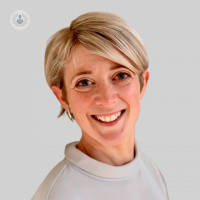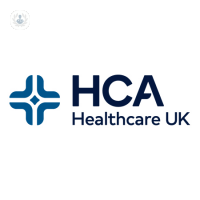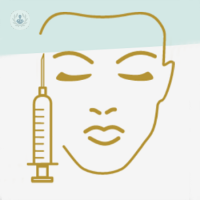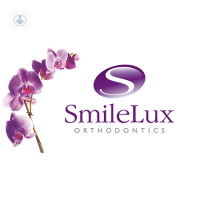What is orthognathic surgery?
Orthognathic surgery aims to correct the position of the maxillary bone and jaw. This type of surgery can correct malocclusion (your bite) and other maxillofacial deformities. Often the results of orthognathic surgery will change the facial appearance.
The types of corrective surgery are:
- Mandibular advancement – when the lower teeth and chin are behind the rest of the face (this appears as an overbite and is also called a ‘weak chin’).
- Closure of an open bite – when the upper and lower teeth do not contact when closing the mouth and leave a space.
- Correcting protruding lower jaw – when the lower jaw juts out, beyond the upper jaw (this appears as an underbite).
- Correcting mandibular asymmetry – when the chin and teeth are diverted to one side, appearing wonky.
Orthognathic surgery may also be performed to treat the following problems:
- Difficulty swallowing
- Difficulty chewing or biting
- TMJ pain and headaches
- Wearing of the teeth
- Mouth breathing
- Sleep apnoea
- Facial injuries or birth defects

Why is orthognathic surgery done?
The objective of orthognathic surgery is to correct the position of the facial bones to improve jaw function and the appearance of the face. Orthognathic surgery will often be accompanied with orthodontic treatments, such as braces.
What does orthognathic surgery consist of?
Orthognathic treatment usually takes 2-3 years and will often begin with orthodontic treatment to move your teeth, usually using braces. Usually after 12-18 months of orthodontic treatment, jaw surgery will be performed. After this, orthodontic treatment is continued for another 6-9 months.
Jaw surgery may focus on the upper or lower jaw, or in some cases, both. As the surgery is performed inside the mouth, you will not have visible scarring on your face. Once the jaw is repositioned, it is held in place with screws and plates, placed underneath the gums.
What does preparation for orthognathic surgery involve?
Before surgery, you will meet with the surgeon to discuss any allergies and medications you take. You will also have a pre-surgery blood test to ensure you are fit for surgery. If you are a smoker, you will need to quit before surgery as this will slow down recovery and increase the risk of infection following surgery.
Other preparation required before orthognathic surgery includes:
- Stockpiling liquid foods (e.g. soup, meal-replacement drinks and milk)
- Acquiring a food blender so that food can be liquidised and eaten more easily
- Arrange time off work and other responsibilities (you will usually need up to 4 weeks off)
What is recovery time like after orthognathic surgery?
Following orthognathic surgery, you will usually stay in hospital for one night, after which you can return home. You will need 2-4 weeks off work or school, but complete healing can take up to 9 months. Your face will be swollen after surgery, but this improves within 2-3 weeks. You should start eating and drinking after surgery, eating soft foods (e.g. soup, smoothies and yoghurts) for the first couple of weeks. You should avoid hard foods for up to 6 weeks following surgery. It is also recommended that you use a soft-bristled toothbrush after surgery. You can expect to have a follow-up appointment 2-3 weeks after surgery.
11-13-2012 08-21-2023Orthognathic surgery
Miss Katherine George - Oral & maxillofacial surgery
Created on: 11-13-2012
Updated on: 08-21-2023
Edited by: Conor Lynch
What is orthognathic surgery?
Orthognathic surgery aims to correct the position of the maxillary bone and jaw. This type of surgery can correct malocclusion (your bite) and other maxillofacial deformities. Often the results of orthognathic surgery will change the facial appearance.
The types of corrective surgery are:
- Mandibular advancement – when the lower teeth and chin are behind the rest of the face (this appears as an overbite and is also called a ‘weak chin’).
- Closure of an open bite – when the upper and lower teeth do not contact when closing the mouth and leave a space.
- Correcting protruding lower jaw – when the lower jaw juts out, beyond the upper jaw (this appears as an underbite).
- Correcting mandibular asymmetry – when the chin and teeth are diverted to one side, appearing wonky.
Orthognathic surgery may also be performed to treat the following problems:
- Difficulty swallowing
- Difficulty chewing or biting
- TMJ pain and headaches
- Wearing of the teeth
- Mouth breathing
- Sleep apnoea
- Facial injuries or birth defects

Why is orthognathic surgery done?
The objective of orthognathic surgery is to correct the position of the facial bones to improve jaw function and the appearance of the face. Orthognathic surgery will often be accompanied with orthodontic treatments, such as braces.
What does orthognathic surgery consist of?
Orthognathic treatment usually takes 2-3 years and will often begin with orthodontic treatment to move your teeth, usually using braces. Usually after 12-18 months of orthodontic treatment, jaw surgery will be performed. After this, orthodontic treatment is continued for another 6-9 months.
Jaw surgery may focus on the upper or lower jaw, or in some cases, both. As the surgery is performed inside the mouth, you will not have visible scarring on your face. Once the jaw is repositioned, it is held in place with screws and plates, placed underneath the gums.
What does preparation for orthognathic surgery involve?
Before surgery, you will meet with the surgeon to discuss any allergies and medications you take. You will also have a pre-surgery blood test to ensure you are fit for surgery. If you are a smoker, you will need to quit before surgery as this will slow down recovery and increase the risk of infection following surgery.
Other preparation required before orthognathic surgery includes:
- Stockpiling liquid foods (e.g. soup, meal-replacement drinks and milk)
- Acquiring a food blender so that food can be liquidised and eaten more easily
- Arrange time off work and other responsibilities (you will usually need up to 4 weeks off)
What is recovery time like after orthognathic surgery?
Following orthognathic surgery, you will usually stay in hospital for one night, after which you can return home. You will need 2-4 weeks off work or school, but complete healing can take up to 9 months. Your face will be swollen after surgery, but this improves within 2-3 weeks. You should start eating and drinking after surgery, eating soft foods (e.g. soup, smoothies and yoghurts) for the first couple of weeks. You should avoid hard foods for up to 6 weeks following surgery. It is also recommended that you use a soft-bristled toothbrush after surgery. You can expect to have a follow-up appointment 2-3 weeks after surgery.


Orthognathic surgery – the jaw correction procedure
By Dr Moira Wong
2024-12-26
If your jaw is misaligned and you have an underbite, you may want to consider orthnogathic surgery to correct your facial asymmetry. Here, top orthodontist Dr Moira Wong explains everything you need to know about surgery to correct the jaw to restore your confidence. See more


A (bite-sized) summary of malocclusion
By Dr Asif Chatoo
2024-12-26
If you're unhappy with the way your upper and lower teeth meet, you may consider seeing an orthodontist, such as Dr Asif Chatoo, to learn if it can be changed. Learn what exactly a malocclusion is, when and why it should be addressed as well as treatment options. See more


How is a symmetrical face achieved through surgery?
By Miss Katherine George
2024-12-24
Leading oral and maxillofacial surgeon and expert in correcting facial asymmetry, Miss Katherine George talks through the different options available to improve minor or major facial asymmetry and achieve a symmetrical face. See more


What is a genioplasty?
By Miss Katherine George
2024-12-23
The chin represents one of our most prominent facial features and numerous methods have been used to alter its shape for aesthetic reasons or the chin position may need to be corrected if it is out of balance in relation to the jaw. A genioplasty is surgery done to change the position of the chin and can be performed by both plastic and maxillofacial surgeons. Maxillofacial surgeon Miss Katherine George runs us through what happens during a genioplasty and long it would take to recover. See more
Experts in Orthognathic surgery
-
Miss Katherine George
Oral & maxillofacial surgeryExpert in:
- Facial reconstruction
- Facelift
- Salivary gland surgery
- Sialendoscopy
- Wisdom teeth
- Orthognathic surgery
-
Dr Sunil Hirani
OrthodonticsExpert in:
- Orthodontics
- Invisalign
- Interceptive orthodontics
- Orthognathic surgery
- Paediatric orthodontics
-
Professor Piet Haers
Oral & maxillofacial surgeryExpert in:
- Cleft palate
- Orthognathic surgery
- Obstructive sleep apnea
- Dental implants
- Temporomandibular joint disorder (TMJ)
- Oral surgery
-
Ms Lisa Greaney
Oral & maxillofacial surgeryExpert in:
- Chin surgery (mentoplasty)
- Dental bone grafts
- Oral surgery
- Orthognathic surgery
- Skin cancer on face
- Facial reconstruction
-
Mr Lachlan Carter
Oral & maxillofacial surgeryExpert in:
- Wisdom teeth
- Oral surgery
- TMJ Surgery
- Facial pain
- Orthognathic surgery
- Vascular malformations
- See all

The Portland Hospital - part of HCA Healthcare
The Portland Hospital - part of HCA Healthcare
205 - 209 Great Portland St. W1W 5AH
No existe teléfono en el centro.
By using the telephone number provided by TOP DOCTORS, you automatically agree to let us use your phone number for statistical and commercial purposes. For further information, read our Privacy Policy
Top Doctors

Allura Medical
Allura Medical
Sheffield
No existe teléfono en el centro.
By using the telephone number provided by TOP DOCTORS, you automatically agree to let us use your phone number for statistical and commercial purposes. For further information, read our Privacy Policy
Top Doctors

SmileLux Specialist Orthodontic Centre
SmileLux Specialist Orthodontic Centre
12 Whittle Ct, Knowlhill
No existe teléfono en el centro.
By using the telephone number provided by TOP DOCTORS, you automatically agree to let us use your phone number for statistical and commercial purposes. For further information, read our Privacy Policy
Top Doctors
-
The Portland Hospital - part of HCA Healthcare
205 - 209 Great Portland St. W1W 5AH, Central LondonExpert in:
- Neurological spinal surgery
- Orthopaedic spinal surgery
- Maternity care
- Pregnancy
- Scoliosis
- In vitro fertilisation (IVF)
-
Allura Medical
Sheffield, SheffieldExpert in:
- Orthognathic surgery
- Facial aesthetics
- Gynaecomastia
- Temporomandibular joint disorder (TMJ)
- TMJ disorders
-
SmileLux Specialist Orthodontic Centre
12 Whittle Ct, Knowlhill, Milton KeynesExpert in:
- Braces
- Digital dentistry
- Orthodontics
- Invisible braces
- Lingual braces
- Most viewed diseases, medical tests, and treatments
- Snoring
- Chronic headache
- Facial feminisation surgery
- Head and neck cancer
- Neck lump
- Botulinum toxin (Botox™)
- Platelet-rich plasma
- Sialendoscopy
- Cleft palate
- Tooth wear







